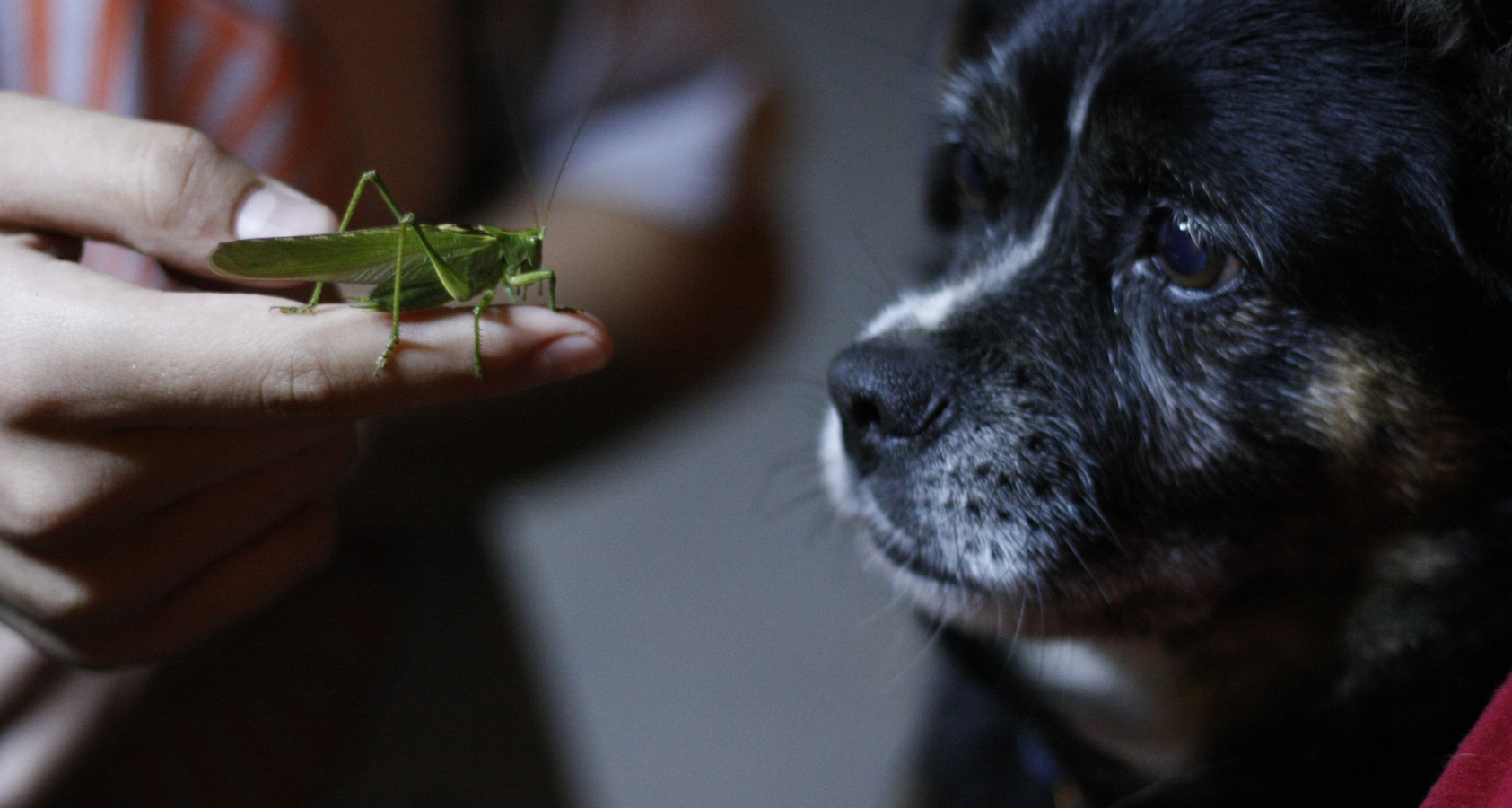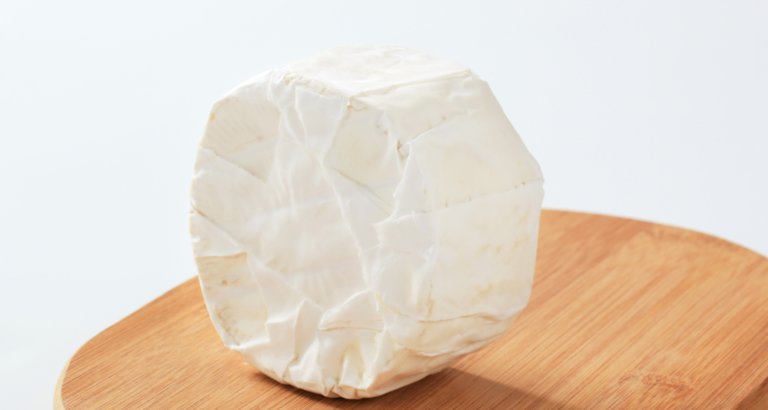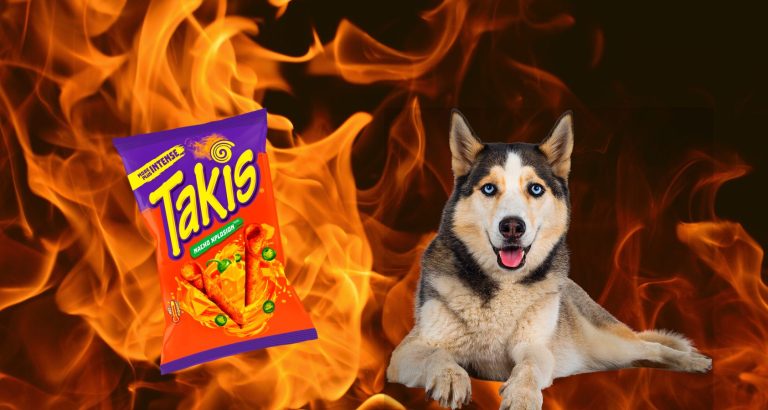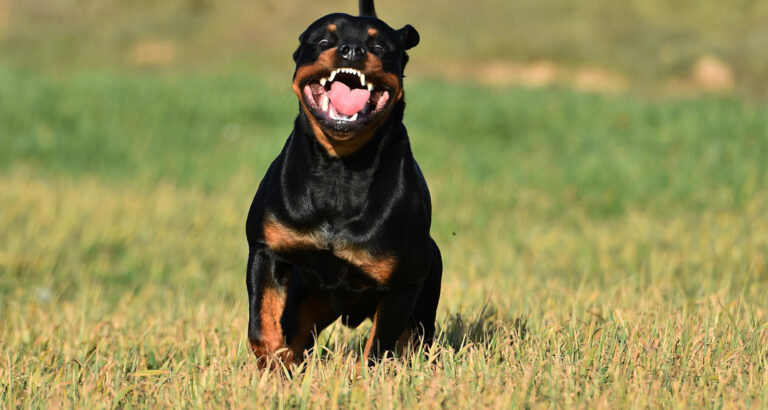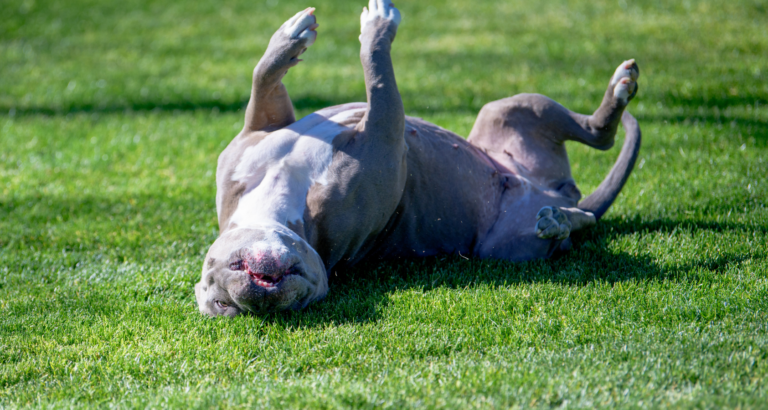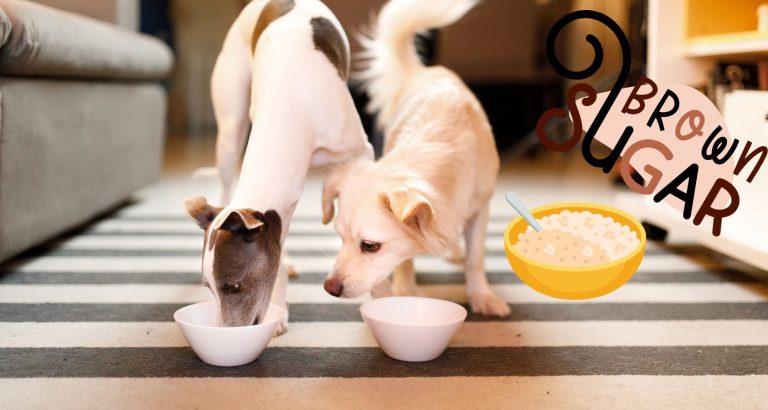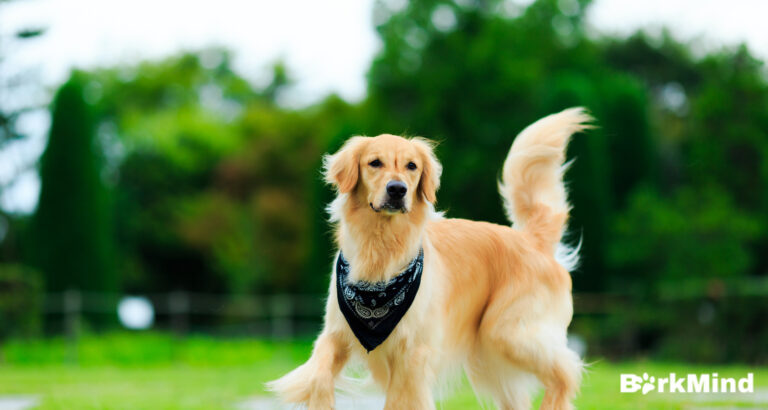Can Dogs Eat Grasshoppers? Are They Safe?
Last updated on March 22nd, 2023 at 12:04 am
Reading Time: 8 minutesThis post may contain affiliate links. If you click and buy we may make a commission, at no additional charge to you.
Can Dogs Eat Grasshoppers?
Dogs eat everything, and when I say everything I mean everything. Dogs are hungry animals that love to eat especially when it’s human food. Now grasshoppers aren’t necessarily human food but can dogs eat them? Or are they bad bugs for dogs?
Quick Answer
Grasshoppers are not part of a dog’s steady diet and may cause food poisoning if they carry toxins, making your dog sick. Whether your dog ate a grasshopper or has developed a habit of catching and eating grasshoppers regularly, he may get ill; therefore, dogs eating grasshoppers should be discouraged.
Thankfully, there are many symptoms of food poisoning in dogs and ways to discourage grasshopper eating in dogs, which you will get from this article. But first, let’s understand why dogs catch grasshoppers in the first place.
Why Does My Dog Hunt Grasshoppers?
There’s no set reason for why your dog has started hunting grasshoppers. It may be odd if he’s never done this before, but it’s nothing to worry about.
Dogs develop an interest in catching bugs randomly. Since they are natural hunters, it’s possible their biological instinct kicks in when they see a grasshopper hopping about and want to catch it.
Since most dogs think of bugs as a reward or a treat for hunting rather than a simple toy, they will likely catch the grasshopper to eat it. Sometimes dogs may accidentally chew and swallow a part of the grasshopper while trying to catch it with their mouth.
Dogs also have strange taste buds and preferences for weird foods. Some dogs prefer the taste of bugs, especially grasshoppers. Even if a dog hasn’t had grasshoppers before, he will try it once to see what it tastes like.
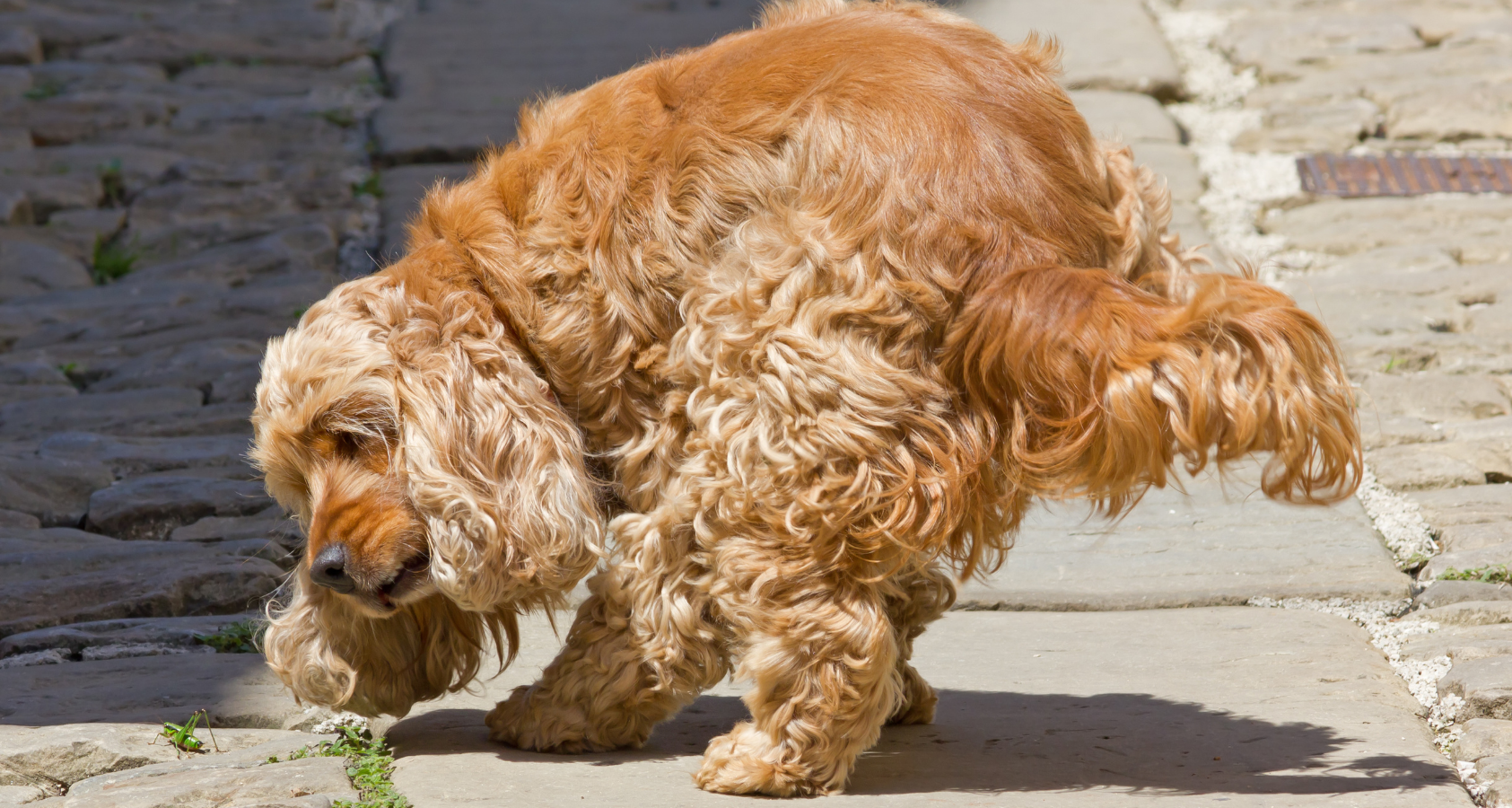
My Dog Ate a Grasshopper- Is It Poisonous?
After your dog caught and ate a grasshopper, you may be asking yourself, “are grasshoppers poisonous to dogs?”
Well, the answer is both yes and no. Grasshoppers aren’t poisonous, but they may carry toxins.
Typically, your dog is going to be fine if he ate one or two grasshoppers. But if the grasshopper your dog ate was a vector for a parasite, if it was carrying toxic fertilizer, if the grasshopper was already dead for many days, or if your dog is allergic to eating bugs, he may get sick from eating just one grasshopper. It’s uncommon but very much possible.
In addition to this, if your dog goes on a hunting spree and manages to catch and eat 4-5 grasshoppers during their hatching and growing seasons, then he will likely get ill simply from indigestion and excess nutrients.
You’ll only see lots of grasshoppers in your yard after a long, dry summer season or during a warm fall. Otherwise, it’s unlikely for your dog to come across enough grasshoppers to make him sick purely from their inclusion in his diet.
Can Dogs Eat Grasshoppers?
As mentioned previously, grasshoppers are typically not poisonous. However, they may carry parasites or toxins from fertilizers and pesticides that may cause health issues in your dog. One or two grasshoppers won’t cause much harm to your dog. But as mentioned many can and will cause severe harm.
Here’s a list of common health problems that can arise from eating grasshoppers.
1. Vomiting
Dogs have sensitive stomachs, so nausea and vomiting aren’t out of the equation. After eating too many grasshoppers, it’s a common symptom and doesn’t necessarily mean a toxin has entered your dog’s gut. Because grasshoppers are rich in nutrients and have a tough exoskeleton, so the excess nutrients and protein can result in nausea.
2. Diarrhea and Aches
If your dog eats more than 2 grasshoppers, he will get indigestion and diarrhea. It goes away 24 hours after the insect has been flushed out of his system. Toxin-carrying bugs also cause diarrhea, but that lasts longer.
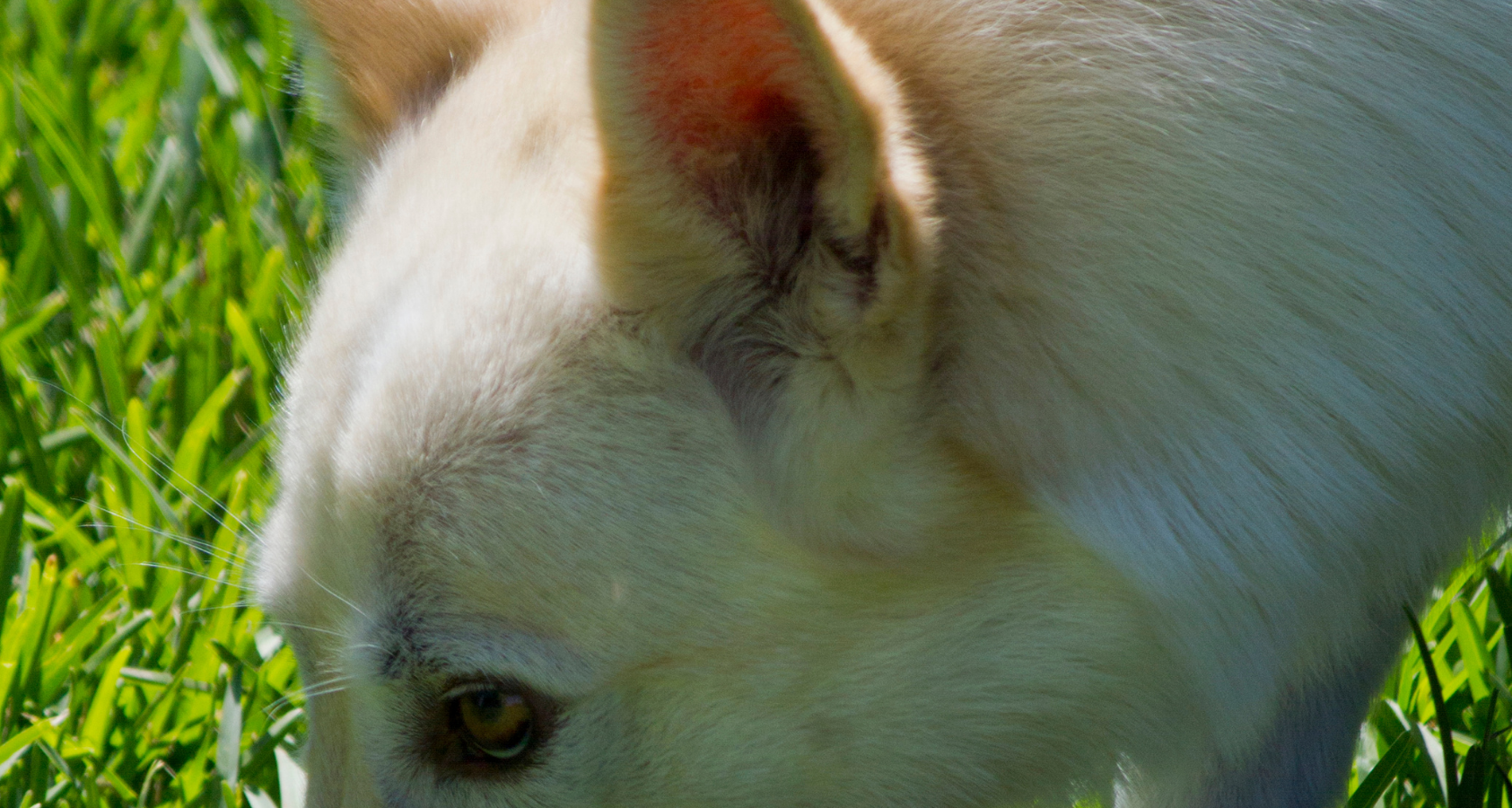
3. Blockage
This is in the serious complication territory. Squished-up bugs may lodge in the intestine and cause a blockage that needs to be seen by a vet urgently.
3. Worms
Grasshoppers may be a vector for worms and parasites. While vaccine immunization takes care of the latter, worms still occur. Check your furry baby for worms. If present, it’s a serious issue that a vet needs to see.
Can I Feed My Dog Cooked Grasshoppers?
Cooked grasshoppers are the safest option for dogs to eat. If you enjoy this high-protein delicacy and want to feed your dog some of it, don’t hesitate. But keep in mind that seasonings can be potentially dangerous for the dog. So be sure to wash or clean off any seasonings on the grasshoppers you’re enjoying before feeding your dog.
If you’re having trouble breaking your dog’s habit of eating grasshoppers, crickets, or other bugs and don’t want to feed him edible grasshoppers with spices, you can cook some grasshoppers as a treat, if you’re not squeamish, that is. Just roast them on medium heat. But feed in moderation, a few times a week.
Signs You Need to Take Your Dog to a Vet ASAP
While symptoms like vomiting and diarrhea cure by themselves in around 24 hours, some signs can persist, and you should take your dog to the vet if you see them.
- Excessive panting
- Loss of stamina
- Fatigue and lethargy
- Constant loose motions
- Permanent loss of appetite
- Chronic stomach or throat pain
- Seizures
- Worms
These signs rarely occur due to grasshopper eating, but they signal some major issues. Your dog needs to see the vet immediately.
In addition to these, if your dog is already weak, fighting an infection or disease, or is very old, he can get worse within 24 hours from simple diarrhea. In such cases, go to a vet fast.
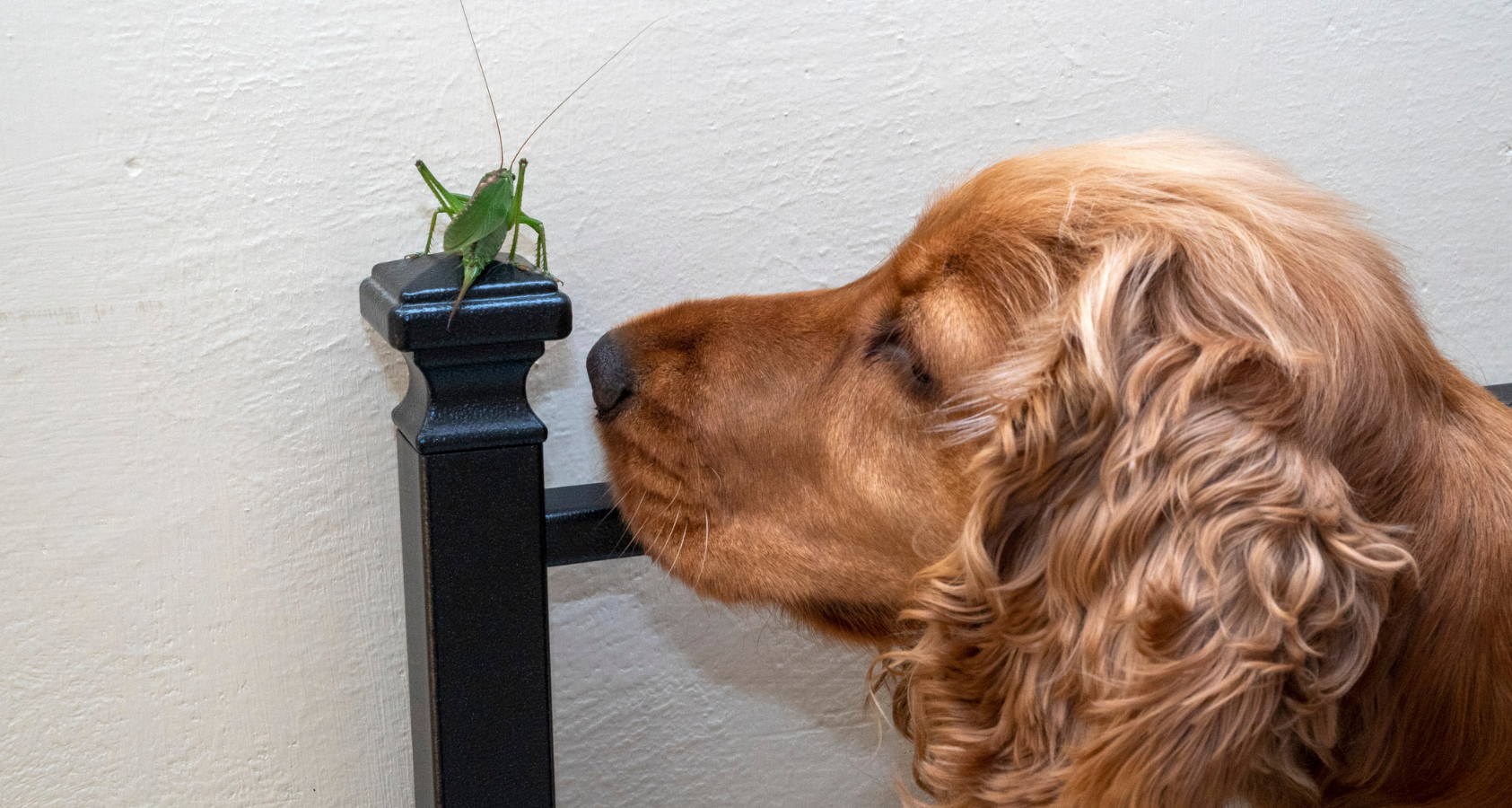
How to Stop Your Dog from Eating Grasshoppers?
Stopping your dog from eating grasshoppers or any other bugs can be tricky. Leaving your furry friend to hunt grasshoppers is normally fine. As these bugs don’t show up on a lawn often and catching them is hard, your dog is fine hunting and eating them occasionally.
However, if your dog has gotten sick from eating one in the past and still wants to catch and eat these bugs, there are some steps you can take to stop him.
- First, most dogs don’t eat grasshoppers solely because of their taste- they prefer the fun and thrill of catching them. You can get your pup a distracting toy or play games like Fetch more often to break the habit.
- Next, if your dog finds bugs when walking through parks, keep him on a leash and monitor his behavior. Keep your pup indoors if there are tons of grasshoppers outside because of hatching season. Lastly, if you’ve trained your dog well, use voice commands to deter him.
- Muzzles should be the last resort and used only when your dog is already used to wearing one, and your dog has serious adverse reactions to eating grasshoppers.
How to Know Whether Your Dog Ate a Grasshopper or a Cricket?
This is a common question. And while there are ways to tell grasshoppers and crickets apart, there’s no way of telling what your dog ate. Luckily, both crickets and grasshoppers are the same terms of diet- both are fine for dogs to eat and make for a high protein treat, but can cause food poisoning if too many are eaten at once or if they are carrying a disease.
Observe Him
If you think he ate a grasshopper but he isn’t acting sick or acting like he might be sick, there’s no need to worry yet. Just keep an eye on him for the next 24 hours or so and make sure he doesn’t eat anything else that looks like it might be poisonous.
If you see gagging, pawing, or trying to throw up. It can be a sign of a grasshopper or cricket that your dog ate. Not all bugs are bad for dogs, however, these insects have known toxins and can cause vomiting, diarrhea and even death if eaten in large amounts.
What Happens If My Dog Eats A Grasshopper?
If your dog eats a grasshopper, it is possible that the insect may be poisonous to your dog. The most common sign of poisoning from grasshoppers is gastrointestinal upset, vomiting and diarrhea. As talked about above. If your dog shows signs of vomiting or diarrhea after eating grasshoppers, contact your veterinarian immediately for further treatment. If you observe your dog eating grasshoppers around the yard, remove them from the yard and keep them away from your dog. Your vet can help you determine whether the grasshopper is poisonous to dogs if you know the size of your dog, how often it consumes grasshoppers, and when it ate the last one it can help your vet.
In addition to gastrointestinal upset, dogs who eat poisonous grasshoppers can also experience tremors and abnormal heart rhythms. Dogs that consume a large number of grasshoppers in a short amount of time may even experience seizures. If you have any concerns about your pet’s recent consumption of grasshoppers, consult with your vet immediately.
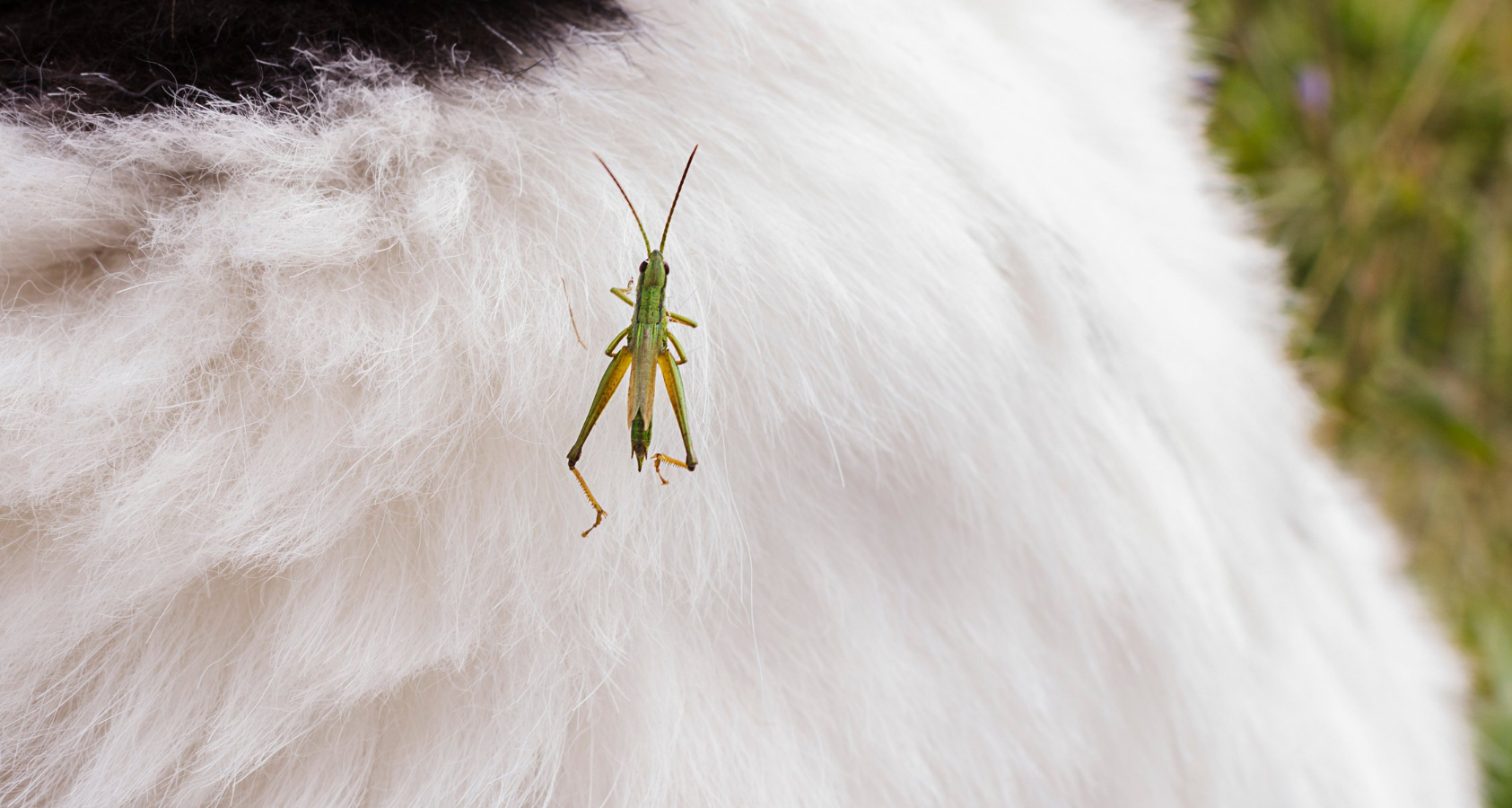
Are There Safe-to-Eat Bugs for Dogs?
If you are planning to add bugs to your dog’s diet to meet their protein requirements, there are some safe options. But it’s advised to consult your vet first.
Typically, safe-to-eat bugs include flies, mealworms ants but beware of fire ants. Similarly, beetles are also not toxic except Asian lady beetles. Grasshoppers, crickets, June bugs, cicadas, etc., are fine in moderation but should be avoided. Cockroaches, bees, slugs, stinkbugs, and spiders are a massive no-no and dangerous to ingest.
Conclusion – Dog Ate Grasshopper!
To summarize, dogs eating one or two grasshoppers is safe most of the time. Dogs may have slight nausea if they eat too many of them or have a bit of indigestion since they’re protein-rich. An occasional hunt is nothing to fret over, but discourage your pup if he’s overeating grasshoppers.
The grasshopper may carry some toxin or parasite that can cause a serious illness in some cases. Just keep the symptoms we mentioned in mind and take him to a vet if you see those.
About The Author
I'm a content writer and researcher. But bottom line, I loveee animals. I had my first animal which was a guinea pig at age 8. Later had a bunny, dog and a lot, a lot of fish. Writing about what I know about pets will allow me to share my knowledge and love for them with everyone else. Dealing with dogs my entire life, I know a lot.

